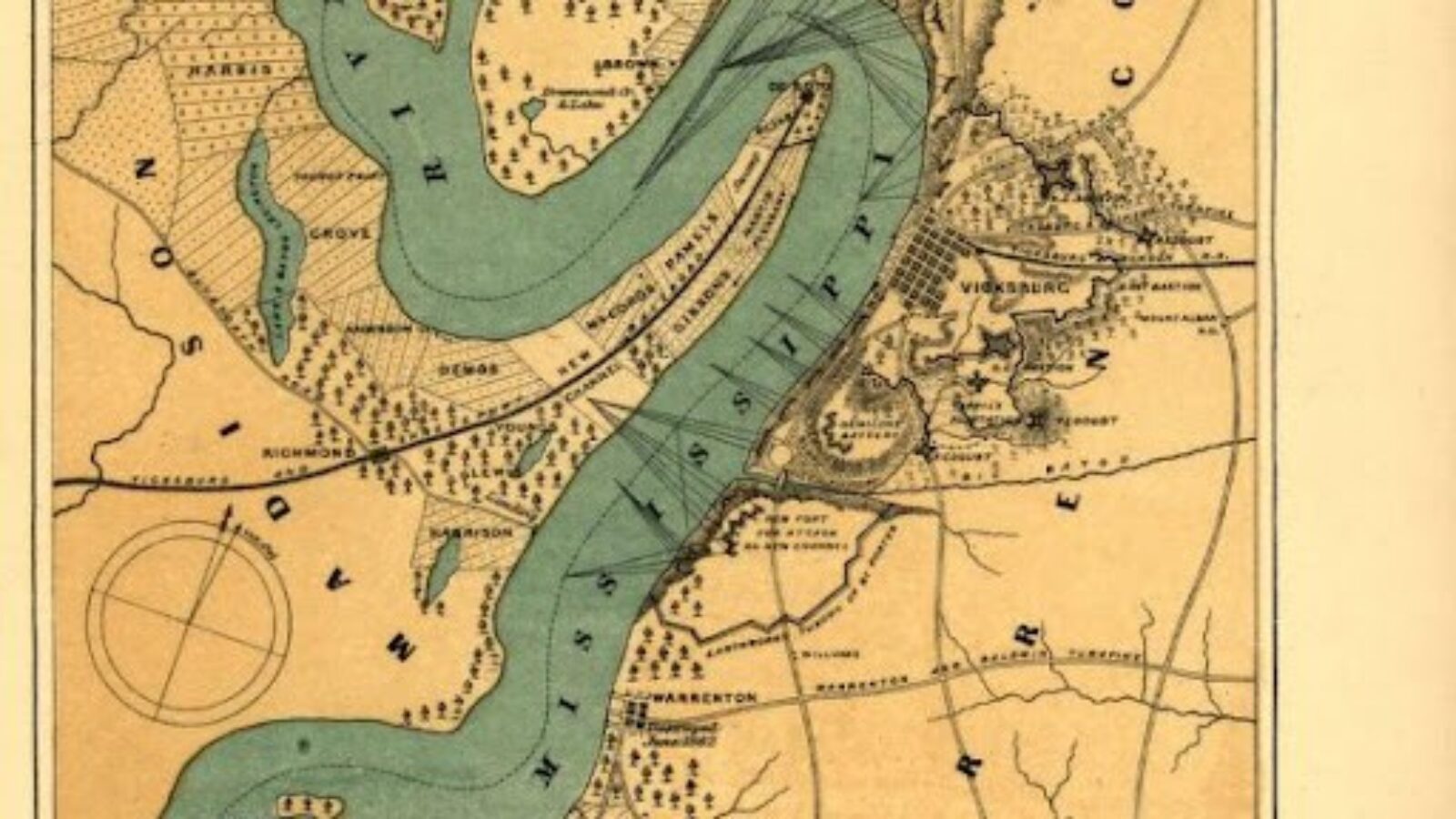May 18, 1863: The Battle of Vicksburg during the American Civil War was a turning point due to the major significance of control of the Mississippi River. When the Union Army eventually won the battle on July 4, 1863, the South was cleaved in half with Union control of the Mississippi River. The Confederate Army then faced great difficulty in moving troops and supplies.
BATTLEFIELDS.ORG: VICKSBURG
Warren County, MS | May 18 – Jul 4, 1863
Vicksburg’s strategic location on the Mississippi River made it a critical win for both the Union and the Confederacy. The Confederate surrender there ensured Union control of the Mississippi River and cleaved the South in two.
How it Ended
Union victory. After a 47-day siege, Lt. Gen. John C. Pemberton’s Confederate troops surrendered to Gen. Ulysses S. Grant. Together with the Union victory at Gettysburg just a day before, Vicksburg marked a turning point in the fortunes of the Union army.
In Context
The Mississippi River was the primary conduit for supplies and communication through the south as well as a vital lifeline for goods going north. To Confederate President Jefferson Davis, Vicksburg was the “nailhead that holds the South’s two halves together.” President Abraham Lincoln remarked, “Vicksburg is the key! The war can never be brought to a close until that key is in our pocket.” The Vicksburg Campaign began in 1862 and ended with the Confederate surrender on July 4, 1863. With the loss of Confederate general John C. Pemberton’s army after the siege at Vicksburg and a Union victory at Port Hudson five days later, the Union controlled the entire Mississippi River and the Confederacy was split in half. Grant’s victory led to his continued command in eastern Tennessee and his eventual appointment as general-in-chief of the Union armies.
